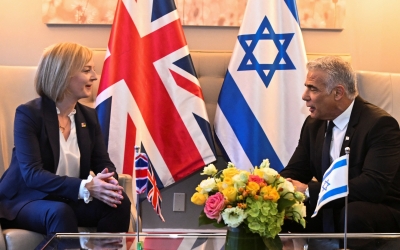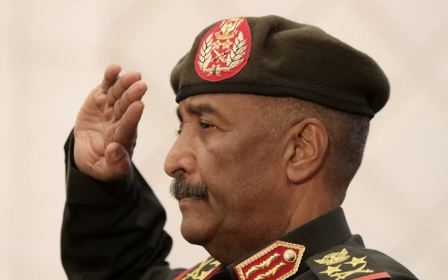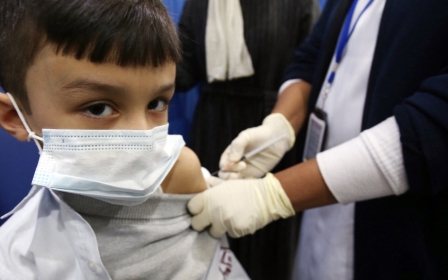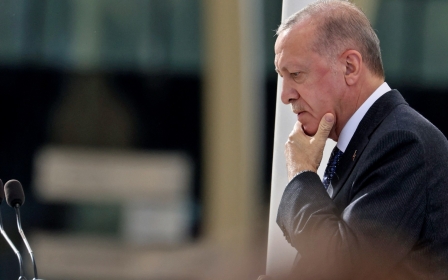Arabic press review: Calls for Tunisian president's resignation following record low election turnout
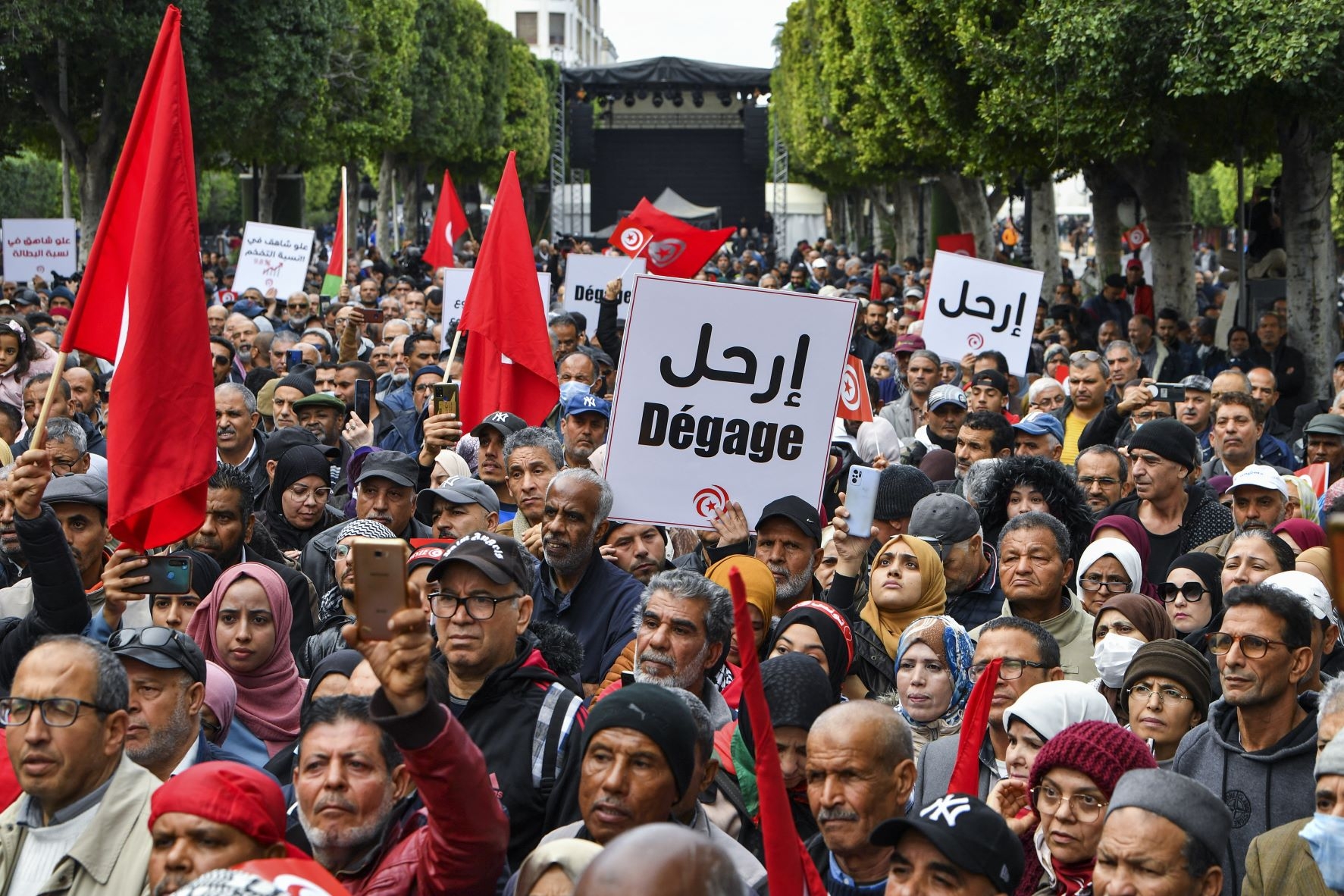
Calls for Tunisian president's resignation following record low election turnout
Politicians and parties have demanded the resignation of Tunisian President Kais Saied after record-low public participation in the country's general legislative elections, according to a report published by the Arabi21 website.
According to official figures, only about 900,000 voters out of more than nine million registered voters participated - less than 10 percent of those eligible - compared to 40.32 percent in the 2019 elections and 69 percent in 2014.
"The meagre results of the elections are the withdrawal of agency from President Kais Saied," said Mohamed Goumani, the leader in the Ennahda movement.
Goumani said the results confirmed the president had "lost legitimacy and legality" and should signal an end to the state of affairs Saied has imposed on the country since he seized executive powers in July 2021.
New MEE newsletter: Jerusalem Dispatch
Sign up to get the latest insights and analysis on Israel-Palestine, alongside Turkey Unpacked and other MEE newsletters
He said the president was: "No longer the suitable person to manage the country, where he took over all the powers and time, and showed an inability to manage."
"We are facing a real moment of change, and the president must resign and leave today, before tomorrow," he said.
For his part, former Tunisian president Mohamed Moncef Marzouki said Saied "no longer has any shred of legitimacy or legality," noting that: "Saied received the third and final blow after he held the farce of the legislative elections that wrote the final chapter of the life of the foolish usurper."
Marzouki told Arabi21 that: "The option of boycotting was the best course for the various opposition forces, otherwise they would have participated in granting legitimacy to the tyrannical and corrupt coup.
"Saied divided and dispersed the unity of Tunisians in a way that no one had done before him, and I do not imagine that anyone would do it after him.
"The solution will come either from the operators who control the man, that is, the deep state, which is undoubtedly now hastening in searching for an alternative."
Detention of Italian citizen threatens relations with UAE
Relations between the UAE and Italy have become increasingly strained as the Gulf state continues to detain an Italian citizen inside his country's embassy in Abu Dhabi, demanding that he pays a large fine after he was accused of supporting the Houthi rebel group in Yemen, according to a report published by the Alkhaleejonline website.
The Italian businessman, Andrea Costantino, has launched an urgent appeal to his country's prime minister, Giorgia Meloni, to help him get out of the embassy.
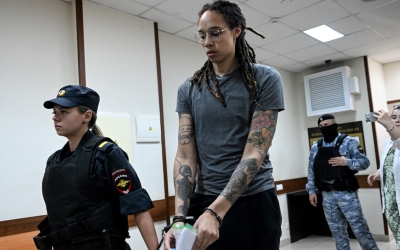
Costantino spent more than a year in Al-Wathba prison on charges of financing terrorism in Yemen after he transported a truck loaded with diesel to a customer there.
Despite having been out of prison for six months, Costantino is still unable to leave the UAE until he pays a fine of 275,000 euros ($292,307) relating to charges he says are "groundless".
UAE special forces arrested Costantino in March 2021, when he, his wife, and his daughter were at the Fairmont Hotel in Palm Jumeirah, Dubai.
The arrest was nominally over a diesel shipment he transported at the beginning of 2016 from the emirate of Fujairah in the UAE to Yemen, where he owns a company.
However, investigators in the UAE said the mediator who received the shipment was linked to the Houthis, a group that has launched attacks on the UAE and who Emirati forces have been targeting in Yemen.
Jordanians' debt increases while living conditions deteriorate
Jordanians have continued to be squeezed as personal debt in the country reached 11.8 billion dinars ($16.64 billion) at the end of last year, compared to 10.9 billion dinars at the end of 2020, according to Al-Araby Al-Jadeed newspaper.
Financial analysts said the high indebtedness of individuals in Jordan was the result of a decline in living standards and the inability of many people to secure their basic needs, a situation that had been exacerbated by the Covid-19 pandemic.
Data issued by the central bank indicated that there were 1.22 million individual borrowers in 2021, compared to 1.17 million in the previous year - an increase of 4.3 percent.
The central bank confirmed that individual indebtedness had been continuously rising in the country since 2017 to reach 9.45 billion dinars in 2021.
Despite high bank interest rates, Jordanians have been forced to borrow to secure their basic needs in light of the high poverty rate and decreasing incomes, accompanied by a rise in the general cost of living.
Financial expert Alaa Diranieh said rising borrowing reflected a widespread decline in living standards and the inability of individuals to afford the basics, such as housing, cars, and spending on education and personal matters.
"Various commercial sectors also suffer from high-interest rates, and the majority of merchants depend on credit facilities to ease their business," added Diranieh.
Kuwait imposes additional fees on health services for expats
Kuwait has decided to impose additional fees on foreigners accessing health services, reported the Kuwaiti Al-Rai newspaper.
Official sources in Kuwait said that the decision, which was issued by the ministry of health, comes as part of a package of reforms.
The sources added that the ministry intends to impose special fees for dispensing medicines to expatriate visitors in addition to the regular medical examination fees.
Kuwait has recently approved a series of significant decisions related to expatriates, including the suspension of work permits for workers coming from several countries until further notice.
Last February, the Kuwaiti Ministry of Health said it had completed a legal draft relating to a rise in health services fees for expats.
Kuwaiti media said at the time that the draft included approving the imposition of compulsory insurance for visitors, reviewing the number of expats in government sector facilities, and raising the value of health insurance to 130 dinars ($422).
Middle East Eye delivers independent and unrivalled coverage and analysis of the Middle East, North Africa and beyond. To learn more about republishing this content and the associated fees, please fill out this form. More about MEE can be found here.


